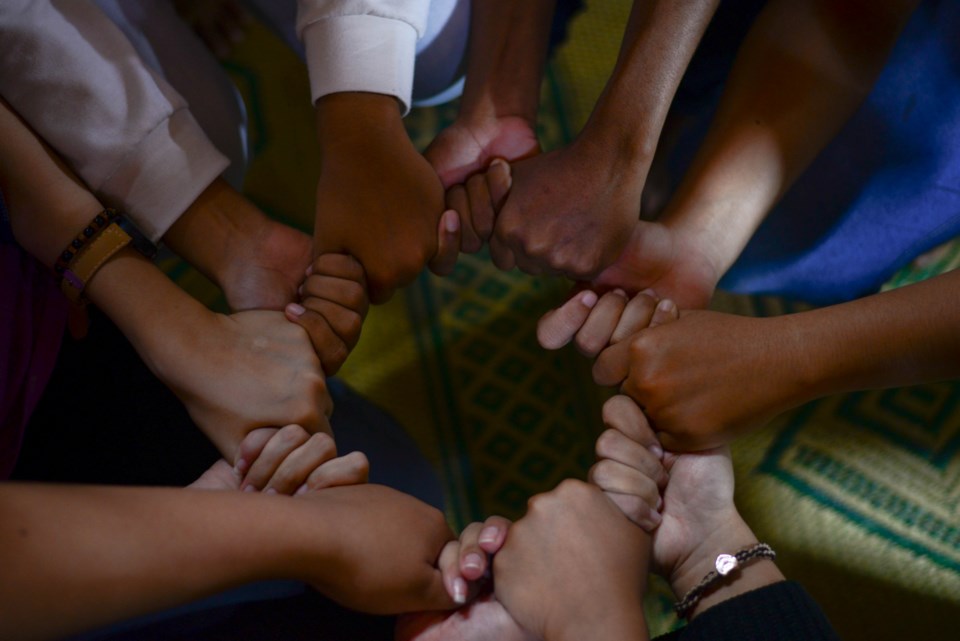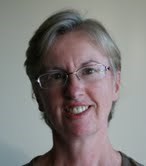 ŌĆ£All my relations.ŌĆØ When I first heard that phrase, said in closing by an indigenous man at the end of a multifaith meeting, I was completely confused. It didnŌĆÖt relate to the preceding sentence, so it seemed at first to be a non-sequitur. Yet there was obviously a purpose and meaning in those words. Internal ŌĆ£this is importantŌĆØ bells went off, because I sensed this was something I needed to understand.╠²
ŌĆ£All my relations.ŌĆØ When I first heard that phrase, said in closing by an indigenous man at the end of a multifaith meeting, I was completely confused. It didnŌĆÖt relate to the preceding sentence, so it seemed at first to be a non-sequitur. Yet there was obviously a purpose and meaning in those words. Internal ŌĆ£this is importantŌĆØ bells went off, because I sensed this was something I needed to understand.╠²
ItŌĆÖs astonishing how the wisdom of a culture can be encoded in such small phrases, embedded in words and stories passed down through generations and known in the bones. And yet, to a person from another culture it can be unrecognizable, incomprehensible. Another language. For that reason, intercultural understanding can be infinitely richer and more valuable than weŌĆÖd ever suspect.╠²
A few years before his passing, 91įŁ┤┤ author Richard Wagamese wrote that the phrase ŌĆ£ŌĆśAll my relationsŌĆÖ means all.ŌĆØ He explained,╠²ŌĆ£Because when you say those words you mean everything that you are kin to. Not just those people who look like you, talk like you, act like you, sing, dance, celebrate, worship or pray like you. Everyone. You also mean everything that relies on air, water, sunlight and the power of the Earth and the universe itself for sustenance and perpetuation. It's recognition of the fact that we are all one body moving through time and space together. To say these words is to offer a doorway to that understanding to those who hear you. It's to proclaim in one sentence that this experience of living is a process of coming together and that it was always meant to be.ŌĆØ
Trying to understand ŌĆ£all my relationsŌĆØ caused reflections that became a powerful mirror. ItŌĆÖs meant coming to terms with the culture of my birth, its missing pieces, its biases, its emphatic individualism, its competitive ethos. ItŌĆÖs meant reassessing the assumption that the world is zero sum, that my gain is your loss and fighting is unavoidable.╠²
Poking around cultural assumptions, turning over their rocks, isnŌĆÖt always comfortable but itŌĆÖs great for learning. When I was twenty I became a Bah├ĪŌĆÖ├Ł, whose teachings encourage people to be unifiers and peacemakers. That can be a stretch when you come from a somewhat confrontational background. At first, I was totally non-plussed by AbduŌĆÖl-Bah├ĪŌĆÖs statement that if two souls quarrel about a question of religion, both are wrong. Even more perplexing was the unequivocal statement that ŌĆ£conflict and contention are in no wise permittedŌĆØ. There was no mention of this not applying if the other person is wrong, offensive or the one who started it!╠²
ŌĆ£The shining spark of truth cometh forth only after the clash of differing opinions,ŌĆØ was an easier teaching to understand. But that too required learning and unlearning, since the exchange is to be done with such ŌĆ£courtesy, dignity, care and moderationŌĆØ that ŌĆ£no occasion for ill-feeling or discord may arise.ŌĆØ╠²
ItŌĆÖs been a long, still unfinished road for me, learning about unity, its tones, its intricate music. At times I feel like someone who has grown up in another language, one lacking a certain sound that then becomes very difficult to pronounce, or even distinguish, as an adult.
The small phrase ŌĆ£all my relationsŌĆØ at the end of a talk many years ago contained an invaluable key to understanding that unity isnŌĆÖt merely an ideal or aspiration. ItŌĆÖs a recognition of our essential reality, where weŌĆÖre coming from and where weŌĆÖre going, and infinitely more important than being right or proving a point. ItŌĆÖs so important that it deserves constant mention. For that, IŌĆÖm profoundly grateful.
 Sheila Flood is a member of the Bah├ĪŌĆÖ├Ł community of Saanich and member of the Victoria Multifaith Society
Sheila Flood is a member of the Bah├ĪŌĆÖ├Ł community of Saanich and member of the Victoria Multifaith Society
You can read more articles on our interfaith blog, Spiritually Speaking, HERE
Photo of united hands by╠²╠²┤Ū▓į╠²
╠²


